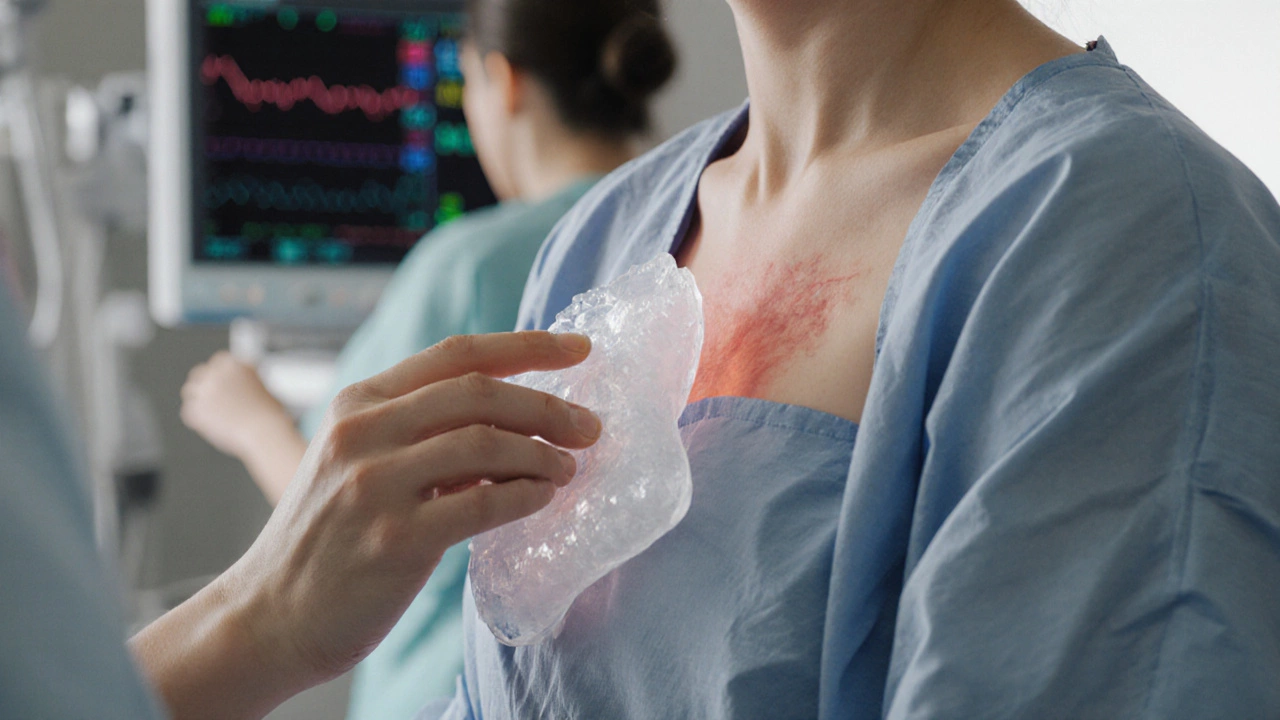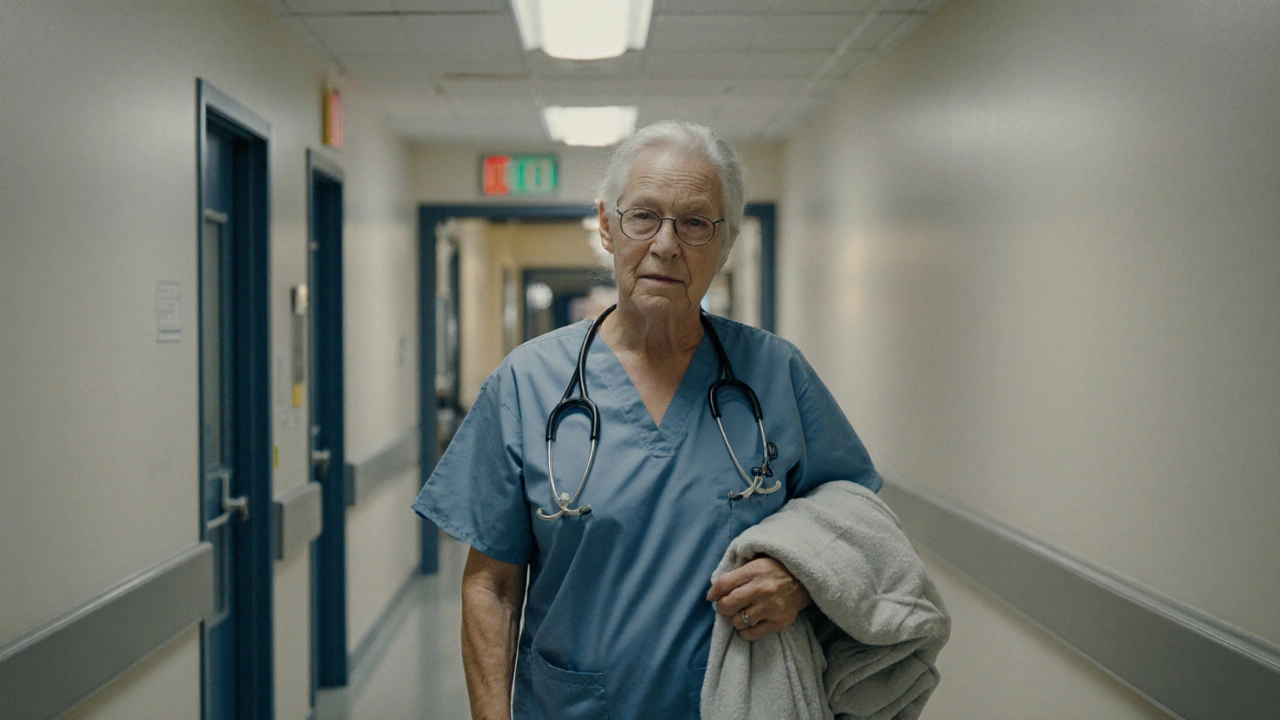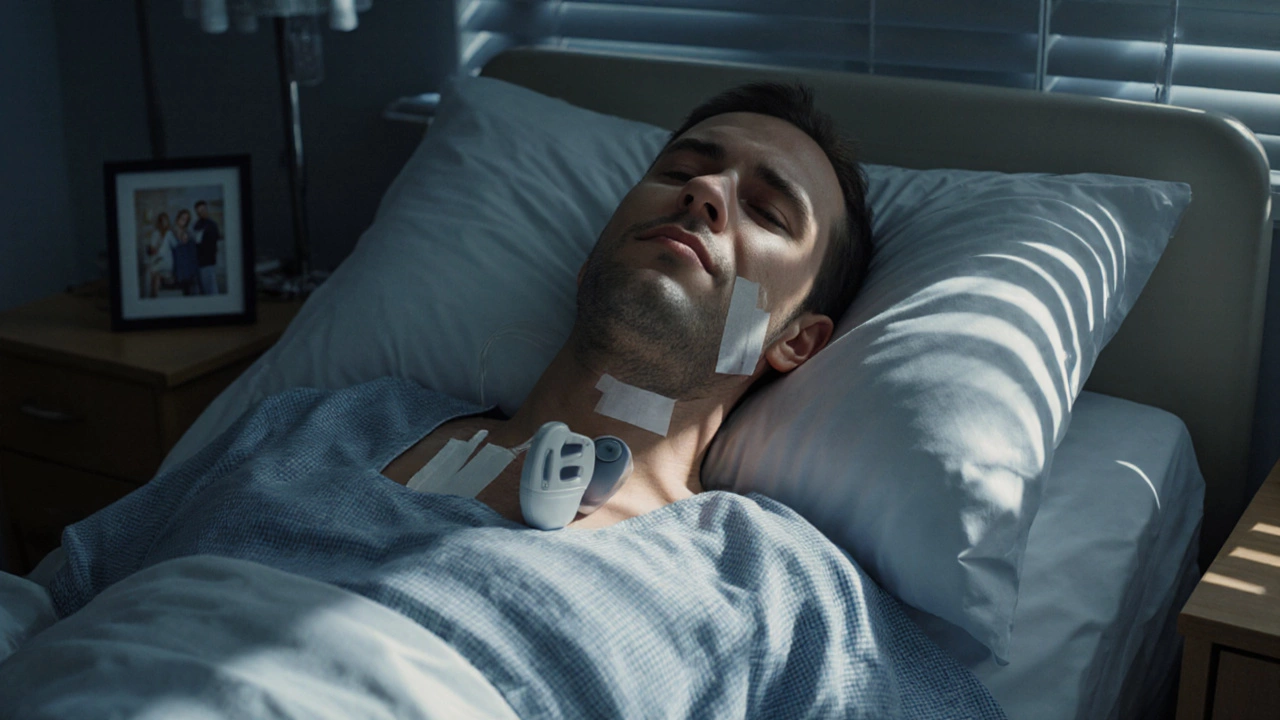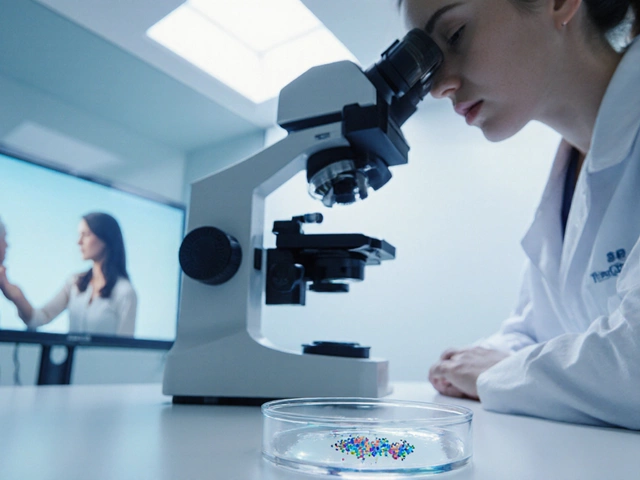After heart surgery, most people expect the first couple of days to be the hardest. But many patients say the real struggle hits on day 3. It’s not the incision that aches the most-it’s the combination of physical strain, emotional fatigue, and the body’s delayed reaction to trauma. If you or someone you love is recovering from heart surgery, understanding why day 3 feels so brutal can make all the difference.
The Pain Shifts, Not Disappears
On day one, you’re still under the influence of strong painkillers and sedatives. The medical team is focused on keeping your heart stable, monitoring oxygen levels, and making sure you’re breathing well. Day two brings some mobility-you sit up, maybe take a few steps. The pain is there, but it’s managed.
By day three, the IV pain meds are cut back or stopped. Your body is waking up to the full reality of what happened. The sternum, which was split open during surgery, hasn’t healed at all-it’s just beginning to react. Every breath, every cough, every shift in position sends sharp, deep pain through your chest. It’s not a surface wound. It’s bone, muscle, and tissue that were torn apart and now are trying to knit back together under constant pressure from your lungs and heart.
Your Body Is in Overdrive
After major surgery, your immune system goes into high alert. Inflammation is necessary-it’s how your body repairs itself. But on day three, that inflammation peaks. Fluid builds up around the surgical site. Swelling increases. Your body is burning energy to fight infection and heal, which leaves you exhausted.
At the same time, your heart is working harder than ever. Even though the surgery fixed the original problem, your heart still has to pump blood through swollen, stiff tissues. That extra effort makes you feel like you’ve run a marathon just by sitting up. Many patients describe this as a crushing fatigue-not just tiredness, but a deep, bone-weary exhaustion that sleep doesn’t fix.
The Emotional Wall Hits Hard
Day three is also when the reality sinks in. You’re no longer in the ICU. The constant beeping of machines has stopped. The doctors aren’t checking on you every hour. You’re alone in a regular hospital room, surrounded by silence. That’s when fear creeps in.
“Is this normal?” “Why does it hurt so much?” “Will I ever feel like myself again?” These thoughts spiral. You’re not just in physical pain-you’re mentally drained. You expected to be getting better by now. But instead, you feel worse. That disconnect between expectation and reality is what makes day three emotionally devastating.
Studies from the American Heart Association show that over 60% of cardiac surgery patients report their lowest emotional state between days 2 and 4. It’s not a sign of weakness. It’s a biological and psychological response to major trauma.

Why Doesn’t It Get Better Faster?
People assume recovery is linear: surgery → pain → improvement. But healing isn’t a straight line. It’s a rollercoaster.
After heart surgery, your body needs time to rebuild. The sternum takes six to eight weeks to fully heal. The muscles around your chest have been cut and stretched. Your lungs, which were collapsed during surgery, need to re-expand fully. Blood flow to your tissues is still adjusting. All of this happens slowly.
Day three is the point where the initial adrenaline and medical support wear off, and your body’s natural healing process takes over. That process is slow, messy, and painful. There’s no shortcut.
What Helps on Day 3?
There’s no magic fix, but these strategies make a real difference:
- Use your incentive spirometer. It’s not optional. Every hour, take 10 slow, deep breaths. This prevents pneumonia, which is a real risk after heart surgery.
- Walk, even if it hurts. Your care team will help you stand and take a few steps. Moving improves circulation, reduces swelling, and helps your lungs expand.
- Ask for pain relief early. Don’t wait until the pain is unbearable. Tell your nurse if your pain is at a 7 or higher on a scale of 10. There are options beyond IV meds-oral painkillers, nerve blocks, even ice packs on the chest.
- Bring a familiar item. A photo, a blanket, or a playlist of calming music helps ground you emotionally. Familiar things reduce anxiety.
- Let someone stay with you. A family member or friend who can hold your hand, remind you to breathe, or just sit quietly makes you feel less alone.

When to Worry
Some discomfort is normal. But if you notice any of these signs, tell your care team immediately:
- Fever over 101°F (38.3°C)
- Shortness of breath that doesn’t improve with rest
- Chest pain that feels like pressure or radiates to your arm or jaw
- Swelling, redness, or fluid leaking from the incision
- Confusion, dizziness, or sudden weakness
These aren’t normal. They could mean infection, a blood clot, or other complications that need urgent attention.
What Comes After Day 3?
Day four usually brings a small shift. The pain doesn’t vanish, but it becomes more predictable. You start to recognize the rhythm of your recovery. The fatigue is still there, but you’re less afraid of it. You begin to notice small wins-sleeping through the night, eating a full meal, walking to the bathroom without help.
By day seven, many patients feel like they’re climbing out of a deep hole. It’s still hard, but now there’s light at the end. Recovery after heart surgery is measured in weeks, not days. But day three is the turning point-the moment you realize you’re not broken. You’re healing.
It’s okay to feel broken on day three. That doesn’t mean you’re failing. It means your body is doing exactly what it’s supposed to do-fighting to survive and rebuild. You’re not alone in this. Thousands have walked this path before you. And you will get through it too.
Why does pain get worse on day 3 after heart surgery?
Pain peaks on day three because the strong pain medications given right after surgery start to wear off, while your body’s natural inflammation response reaches its highest point. The sternum, which was split open, hasn’t healed yet, and every movement triggers deep pain. Your immune system is working hard to repair tissue, which causes fatigue and swelling. It’s not that something went wrong-it’s just the normal, expected timing of healing.
Is it normal to feel emotional on day 3 after heart surgery?
Yes, it’s very common. After the initial medical focus fades, patients face the reality of their recovery. The silence, the isolation, and the realization that healing is slow can trigger anxiety, sadness, or fear. Studies show over 60% of cardiac surgery patients experience their lowest emotional state between days 2 and 4. This is a normal part of recovery, not a sign of depression.
How long does it take to feel normal after heart surgery?
Most people start feeling like themselves again between 6 and 12 weeks. The sternum takes 6 to 8 weeks to heal fully. Energy levels return gradually-you’ll have good days and bad days. By three months, most patients can return to light activities. Full recovery, including returning to work or exercise, often takes 4 to 6 months. Patience is key.
Can I skip physical therapy after heart surgery?
No, physical therapy isn’t optional-it’s critical. Cardiac rehab programs help you rebuild strength safely, improve lung function, and reduce the risk of future heart problems. Skipping it increases your chance of complications like blood clots, pneumonia, or muscle loss. Even if you feel weak, gentle movement guided by a therapist makes recovery faster and safer.
What should I eat on day 3 after heart surgery?
Focus on high-protein, low-sodium foods to support healing and reduce fluid retention. Eggs, lean chicken, fish, beans, yogurt, and vegetables are good choices. Avoid processed foods, canned soups, and salty snacks. Drink plenty of water unless your doctor says otherwise. If your appetite is low, eat small meals every 2-3 hours. Nutrition is just as important as rest.






